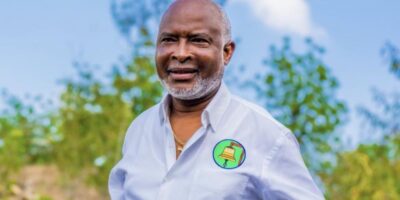Victims of rape and suffering the consequences, these poor survivors explain that they haven’t received any assistance from the Haitian government. Since then, they have been living in a pitiful and profound misery
A cruel campaign of murder, rape and arson was carried out in July 2022 against the population of Cité Soleil by members of the G-9 gang, athirst for revenge against the rival gang, G-Pèp, led by Gabriel Jean Pierre, aka Ti Gabriel, who controlled Cité Soleil.
Almost all the men found were slaughtered, and the women were raped.
An investigation conducted by the National Human Rights Defense Network (RNDDH) reveals a catastrophic record of approximately 200 homes destroyed, more than 300 people murdered, and at least 52 women raped during this attack.
« It was a Friday. I was in the street when the rumors of the massacre in the Cité reached me. I started running towards my house where I had left my husband and baby”, explains Nadège, a survivor who lived in Soleil 17 (a street in Cité Soleil).
Almost all the men found were slaughtered, and the women were raped.
The young lady was going to experience one of the worst moments of her life on her way. “While passing by “Dèyè Mi”, a road in Cité Soleil leading to my house, I met three cruel men. They beat me violently to the point of knocking a tooth out of my mouth before dragging me into a bush where they threw me on the ground and raped me horribly,” she recounts.
Despite the desecration of her body by the gangsters, Nadège did not give up the goal of returning home to her family. “When I arrived, there were only ruins and ashes. My house with all the goods it contained, my husband and my baby were all burned,” says the victim whose face still illustrates the pain of these terrible memories.
Read also: In Haiti, gangs are burning the bodies of their victims
Although victims of rape and suffering the consequences, bereaved and destitute, these poor survivors seem to have received no help from the Haitian government and have languished in deep and pitiful misery since then.
The young lady was going to experience one of the worst moments of her life on her way.
Homeless, some had taken refuge in the Hugo Chavez square of Maïs Gâté, an open space where, on the one hand, they rejoiced when it rained because they could get water, and on the other, they suffered for their sleep.
Read also: Professionals flee insecurity in Port-au-Prince by moving to the countryside
What’s worse, during the month of October, they were going to be expelled by the municipal authorities. Most of them settled in the surroundings of BRANA, still in inhuman conditions.
In these public places, they are still victims of rape. This is the case of Marie, who moved in front of the BRANA office and was raped again on November 14.
Others, having no other choice, continue to live in Cité Soleil where they regularly see the place where they were raped and the place where their families were murdered.
In these public places, they are still victims of rape.
“Every time I pass through Dèyè Mi, [the only stretch of road in the commune that leads from the national road to the interior of the Cité], it is as if I were raped again. I can’t help but have all the images come back to me,” Nadège laments.
In most cases, these victims stay with a relative and may have to take up the role of a servant to gain the appreciation of their host.
“Since July 8, I have been living on a friend’s porch. I have to suffer through waiting until everyone else is in bed before I make my bed. At the same time, I have to wake up before everyone else in the house. This is both to avoid blocking the way and to avoid being trampled,” says Sofia, with tears in her voice and misery on her face.
Every time I pass through Dèyè Mi, […], it is as if I were raped again.
– Nadège
On the other hand, they have to face all kinds of problems: their hunger and their children’s hunger, their clothing needs and those of their children, their children asking them to go to school, insisting on seeing their missing father, etc.
For psychologist Dalencour-Turnier, these women have not only lost their loved ones, their homes and their possessions, but also all the plans they made before the tragedy as well as their ways of organizing themselves.
In her opinion, it is a real loss for these women to persist in finding a place where they can reorganize their lives normally/peacefully.
“They need an environment that can allow them to recover, to rebuild. Whereas the material consequences of what they’ve been through only contribute to burying them further”, she believes.
These women have not only lost their loved ones, their homes and their possessions, but also all the plans they made before the tragedy as well as their ways of organizing themselves.
– Dalencour-Turnier
With all this pain, the psychological after-effects of their rape, the loss of their children or their husbands who, in most cases, were their right-hand, the loss of their homes, their businesses and their consequences are extremely vulnerable psychologically, according to the psychologist.
“Some of the women I work with at “Kay Fanm” have depressive symptoms; they wonder why they are still alive,” she explains.
Despite the collective psychological care offered by some organizations, psychologist Dalencour-Turnier believes that this is not enough. “Given everything they have experienced and continue to experience, she analyzes, in addition to collective care they should be considered individually.”
The task of providing social assistance to these victims falls to the Ministry of Social Affairs and Labor (MAST).
– Yolette Jeanty
The psychologist also believes that to be fully effective, the psychological care of these victims should be accompanied by economic support or a material condition like their previous lifestyle.
According to women’s rights activist Yolette Jeanty, the task of providing social assistance to these victims falls to the Ministry of Social Affairs and Labor (MAST).
AyiboPost could not confirm whether or not this institution was involved in the welfare of these women. “If there had been effective support from MAST, I would not have received this influx of people every day at Kay Fanm during the month of August last year,” explains Dalencour-Turnier.
The activist and director of Kay Fanm emphasizes that the precariousness in which her survivors find themselves, their need for survival … is not without affecting their dignity.
The psychological care of these victims should be accompanied by economic support or a material condition like their previous lifestyle.
– Dalencour-Turnier
She still remembers one afternoon in August last year, when the association she runs no longer had the capacity to receive people, almost all of them agreed to spend the night in front of the institution’s premises in inhuman conditions, without blankets, without anything to eat. The worst thing is that they were on the side of the national road where the risk of being hit by a vehicle is not small.
Read also: Did you know an American Ambassador was once kidnapped in Haiti?
“I was afraid that they would get hurt, but they preferred to take that risk rather than not being received the following day,” adds the director who believes that an effort by the Haitian government to accompany these women is extremely necessary and even urgent.
P.S.: The names of the victims in this article are not real names. AyiboPost has decided to do so to protect their identity.
English translation by Didenique Jocelyn and Sarah Jean.







Comments